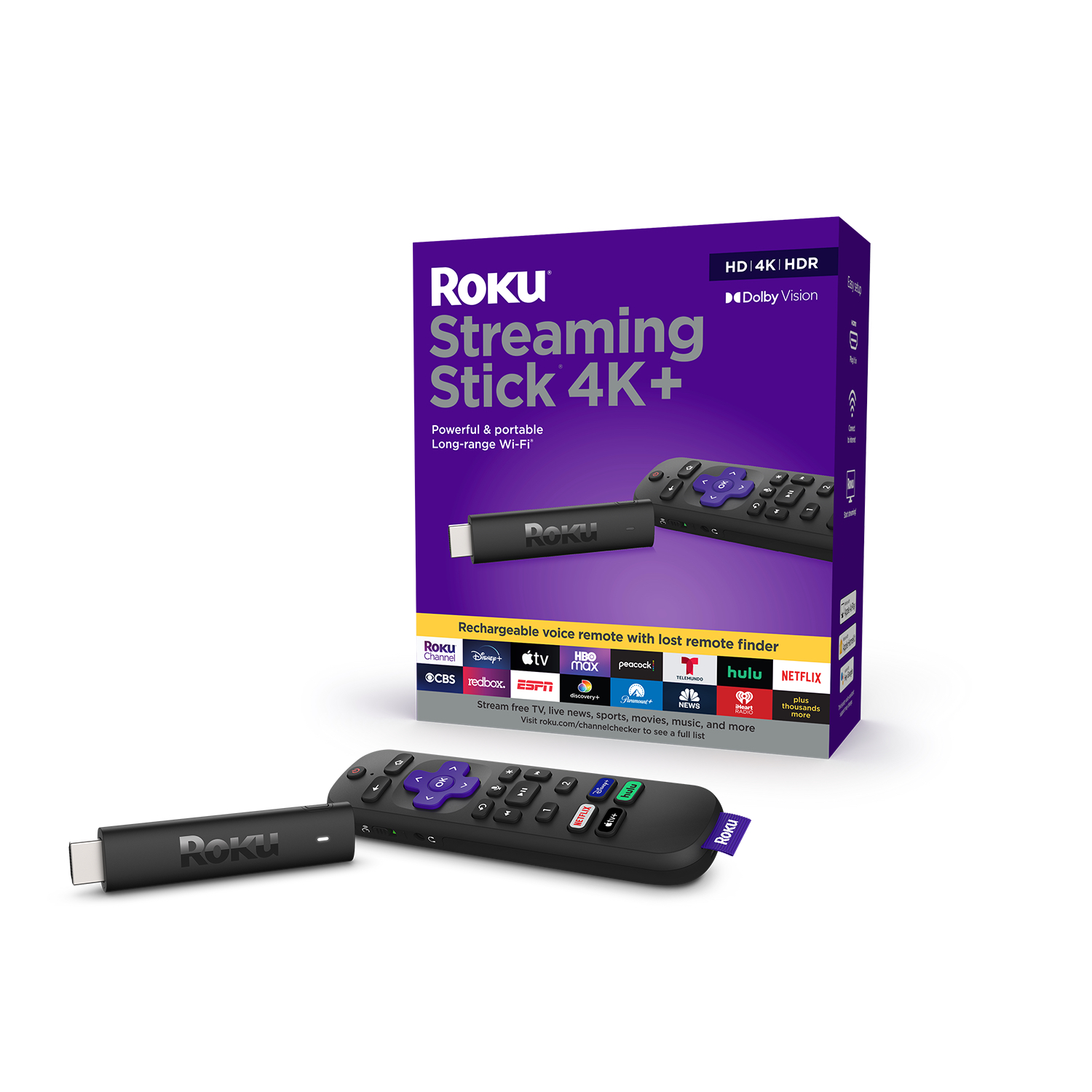Did Roku Quietly Capitulate to Google on AV1 Codec Support with Its October Streaming Stick 4K Release?
Support for the new 4K tech standard was reported to be at the heart of Roku's just-resolved impasse with Google over YouTube

The smarter way to stay on top of the streaming and OTT industry. Sign up below.
You are now subscribed
Your newsletter sign-up was successful
It looked like the Roku-Google dispute went down to wire, with the two sides announcing a just-in-time deal to keep the hugely popular YouTube app in the Roku Channel Store, and also restore the YouTube TV virtual pay TV app, which was removed from the Channel Store back in April.
But it now appears that the seeds to the resolution of the impasse might have been quietly sown back in October, when Roku released its latest streaming device, the Roku Streaming Stick 4K, without touting its support for the AV1 codec.
Also read: Google vs. Roku: What We Know About the Biggest Tech Beef in Streaming Right Now
Next TV interviewed a Roku product manager in September to discuss the new quad-core HDMI streaming stick, and the AV1 subject never came up. (Dunce cap on us: We didn't ask about.) AV1 support also wasn't mentioned in Roku's press release touting the new $50 Roku Streaming Stick 4K, as well as the $70 Roku Streaming Stick 4K+, which bundles in Roku's fancy voice-enabled, rechargeable remote.
A Roku rep told us Wednesday evening that he'd talk to his tech team and get back to us. But according to several enthusiast pubs that know way more about 4K video encoding than we ever will -- HD Guru and AV Forums -- the Roku Streaming Stick does indeed support AV1.
It seems strange to us that Roku would release its new streaming stick without mentioning AV1. For its part, Amazon prominently touted the codec's support wits its similarly targeted Fire TV Stick 4K Max, which also hit the market back in October
In terms of the Roku vs. Google impasse, having AV1 quietly integrated into Roku's HDMI gadget is actually significant news.
The smarter way to stay on top of the streaming and OTT industry. Sign up below.
AV1's lead developers -- Google, Netflix and Facebook among them -- claim the new codec delivers 4K video more efficiently and effectively than other video codecs.
Also read: Growth in Server Need for Video Processing Is 'Unsustainable,' Former Netflix Encoding Chief Says
Netflix just announced limited deployment of AV1 video.
"Given AV1 consumes less bandwidth for any given quality level, our players are able to sustain the video quality for a longer period of time and do not need to switch to a lower bitrate stream as much as before," Netflix engineers jointly said in a company blog published in November.
Meanwhile, Google earlier this year reportedly told its device partners who license the YouTube app to start building AV1 support into their gadgets.
The kerfuffle between Roku and Google emerged in April, when the YouTube TV virtual pay TV app was suddenly removed from the Roku Channel Store. Roku declared that the dispute wasn't about money, but rather Google using its "unchecked monopolist" power to apply undue leverage on things like platform search.
Also read: Roku and Amazon Ply Ordinary 'Plus' and 'Max' Marketing to Super New 4K Streaming Sticks
Google kept its cards closer to the vest. But tech blog Protocol was first to report that Google was leveraging Roku to start building AV1 support into its devices -- a proposition Roku was reportedly resisting, at least initially, because it would drive up hardware costs.
Notably, at an investor conference back in May, Roku CFO Steven Louden accused Google of trying to “require us to do certain things on the device side that would increase our cost basis and hence, erode our [bill of materials] cost advantage that we have from Google products like Chromecast and like Android TV.”
In any event, while Roku appears to have integrated AV1 support into its newest streaming gadget, it's unclear as to how much pressure it will put on its smart TV OEM partners to add AV1 wherewithal into their new sets.
Daniel Frankel is the managing editor of Next TV, an internet publishing vertical focused on the business of video streaming. A Los Angeles-based writer and editor who has covered the media and technology industries for more than two decades, Daniel has worked on staff for publications including E! Online, Electronic Media, Mediaweek, Variety, paidContent and GigaOm. You can start living a healthier life with greater wealth and prosperity by following Daniel on Twitter today!

